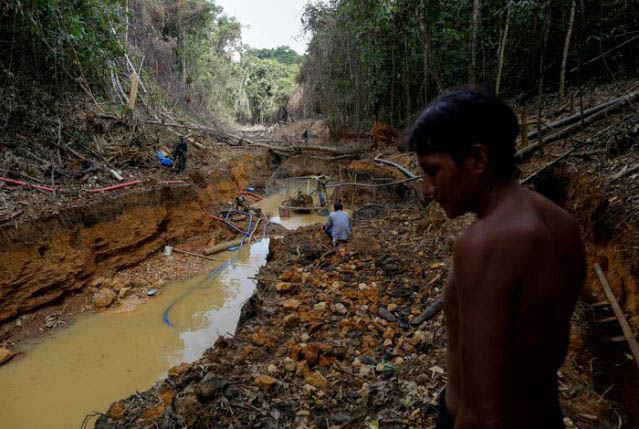BRASILIA, (Reuters) – A federal court ordered the Brazilian government yesterday to expel an estimated 20,000 illegal gold miners from the Yanomami indigenous reservation to protect one of the most isolated major Amazon tribes from the spread of coronavirus.
The judge gave President Jair Bolsonaro’s administration five days to come up with an emergency plan to protect the Yanomami by deploying agents from the indigenous affairs and environmental agencies and military personnel.
Some 27,000 Yanomami live in relative isolation on a vast reservation twice the size of Switzerland and have been invaded for decades by gold miners who have brought diseases fatal to their people.
To date, there have been more than 160 confirmed cases of COVID-19 among the Yanomami people and five deaths.
The tribe had appealed to authorities to expel the gold miners who have destroyed forests and poisoned rivers with mercury used to separate the gold from river-bed sediment.
A Reuters review of satellite images showed that illegal gold mining has risen sharply over the last five years on the reservation.
Yanomami leaders say the number of prospectors on their land has surged since Bolsonaro was elected president in 2018 vowing to develop the Amazon and to tap its mineral riches even by allowing miners onto protected indigenous reservations.
In a Twitter post commenting on the court decision, Vice President Hamilton Mourão, a retired army general heading the government’s Amazon policies, disputed the number of illegal miners on the reservation, estimating there were 3,500 and not 20,000 cited by the judge.
Gold has become a significant export from Brazil’s northernmost state of Roraima even though there are no legally registered gold mining operations there.
According to official statistics, 486 kilos were exported to India from Roraima in 2019, up from 38 kilos in 2018.





